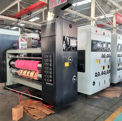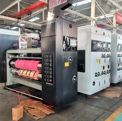![Compressor Wheel Market: Size, Trends, and Key Players [USD 12 Billion by 2028]](https://d91ztqmtx7u1k.cloudfront.net/ClientContent/Images/Catalogue/5c8c9ce5-7e15-4d02-8f39-66e6f488fa45.png)
Compressor Wheel Market: Size, Trends, and Key Players [USD 12 Billion by 2028]
January 24, 2025
According to TechSci Research, the Global Compressor Wheel Market stood at USD 12 billion in 2022 and is anticipated to grow at a CAGR of 6.27% during the forecast period of 2024-2028.
The market is witnessing robust growth driven by increasing demand from industries such as automotive, aerospace, power generation, and manufacturing. Compressor wheels, integral to turbocharger systems, are essential for enhancing performance and improving fuel efficiency.
This report delves into the key trends, drivers, challenges, and opportunities shaping the global compressor wheel market, offering a detailed analysis of geographical segmentation, technological advancements, and industry dynamics.
Compressor Wheel Market Overview
Compressor wheels are critical components in turbochargers, which are widely used across various sectors, including:
- Automotive: Enhancing engine performance and fuel efficiency.
- Aerospace: Supporting propulsion systems and high-performance applications.
- Industrial: Enabling energy-efficient compressors for manufacturing, oil and gas, and power generation.
The demand for energy efficiency, emission reduction, and higher performance is fueling the adoption of compressor wheels globally.
Browse over market data Figures spread through 180 Pages and an in-depth TOC on "Global Compressor Wheel Market.” @ https://www.techsciresearch.com/report/compressor-wheel-market/23686.html
Key Compressor Wheel Market Drivers
- Rising Demand for Fuel Efficiency:
- Stringent global emission standards are prompting automotive manufacturers to adopt turbocharging technology. Compressor wheels optimize air intake, improving combustion efficiency and reducing emissions.
- Growth in Automotive Production:
- Increased automobile production, particularly in Asia-Pacific countries like China and India, is driving demand for compressor wheels.
- Technological Advancements:
- Innovations such as electric turbocharging and lightweight materials are enhancing compressor wheel efficiency and durability.
- Energy-Efficient Solutions:
- Industrial sectors are adopting advanced compressor technologies to meet sustainability goals and reduce energy consumption.
Emerging Trends in the Compressor Wheel Market
- Electric Turbocharging:
- Electric turbochargers eliminate traditional turbo lag by using electric motors to drive the compressor wheel. This innovation aligns with the growing trend toward electric and hybrid vehicles.
- Material Advancements:
- Adoption of materials like titanium alloys and carbon fiber composites enhances performance by reducing weight and increasing durability.
- Aerodynamic Efficiency:
- Manufacturers employ computational fluid dynamics (CFD) simulations to design compressor wheels with optimized aerodynamic profiles, improving performance and fuel efficiency.
- Customization and Application-Specific Solutions:
- Industries demand tailored compressor wheels to meet unique operational requirements, from automotive engines to aerospace propulsion systems.
- Integration of Industry 4.0:
- Smart manufacturing practices, IoT, and data-driven processes enable real-time monitoring, ensuring quality control and production efficiency.
Geographical Segmentation
- Asia-Pacific:
- Market Leadership: Asia-Pacific dominates the global compressor wheel market due to its thriving automotive industry.
- Key Growth Drivers: Rapid urbanization, rising disposable incomes, and government initiatives promoting electric vehicles in China and India.
- Future Outlook: Continued advancements in automotive technology and energy efficiency will sustain growth in the region.
- North America:
- Technological Innovation: The U.S. leads in adopting electric turbocharging and advanced manufacturing technologies.
- Key Sectors: Automotive, aerospace, and power generation are primary contributors to market growth.
- Europe:
- Emission Regulations: Stringent EU emission norms drive the adoption of turbocharged engines.
- Focus on Sustainability: European manufacturers emphasize lightweight materials and energy-efficient solutions.
- Rest of the World:
- Emerging Markets: Regions like the Middle East and Africa are witnessing growth due to increasing industrialization and infrastructure development.
Technological Advancements
- Lightweight Materials:
- Titanium alloys and carbon fiber composites reduce weight, improve strength, and enhance heat resistance.
- Advanced Aerodynamics:
- Computational tools optimize compressor wheel designs for superior performance.
- Smart Manufacturing:
- Integration of IoT and data analytics enables precision in manufacturing and enhances operational efficiency.
Challenges
- Technological Complexity:
- Developing high-performance compressor wheels requires sophisticated design, materials, and manufacturing processes.
- Quality Control:
- Ensuring consistency and reliability across production facilities is critical but challenging.
- Cost Pressures:
- Manufacturers must balance innovation with cost-efficiency to remain competitive.
- Regulatory Compliance:
- Adapting to regional emission standards necessitates continuous investment in R&D.
- Awareness and Education:
- Limited understanding of compressor wheel benefits among end-users hinders market penetration.
Opportunities
- Eco-Friendly Applications:
- Rising demand for electric vehicles and renewable energy systems offers significant growth potential.
- Innovations in Manufacturing:
- Advanced manufacturing processes, such as additive manufacturing (3D printing), enable cost-effective and high-precision production.
- Expansion in Emerging Markets:
- Developing regions with growing industrial and automotive sectors present untapped opportunities.
Competitive Landscape of Compressor Wheel Market
Leading companies in the Global Compressor Wheel Market include:
- Melett North America Inc. (Melett Ltd.)
- Nelcon Motor Company
- ABI Showatech Private Ltd.
- UACJ Corporation
- Changzhou E & E Turbo Power Co. Ltd.
- PHESSIO TURBO
- BOOSTER Precision Components
- BorgWarner Inc.
- Turbo Systems
- Doncasters Group Ltd.
These players are focusing on innovation, strategic partnerships, and geographical expansion to strengthen their market presence.
Download Free Sample Report @ https://www.techsciresearch.com/sample-report.aspx?cid=23686
Customers can also request 10% free customization on this report.
Recent Developments in Compressor Wheel Market
- MARK Compressors (India):
- In October 2020, launched durable piston air compressors (Ironwind and Bluewind series) to meet Indian market requirements.
- Caterpillar Inc. (USA):
- In March 2023, introduced new engines, small wheel loaders, and rotary cutters, boosting compressor wheel demand in North America.
Conclusion
The Global Compressor Wheel Market is poised for substantial growth, driven by advancements in technology, material innovation, and the increasing emphasis on energy efficiency and emission reduction.
While challenges such as cost pressures and regulatory compliance persist, the market’s adaptability and focus on innovation ensure its continued evolution.
Manufacturers and suppliers must leverage opportunities in emerging markets, eco-friendly applications, and smart manufacturing to capitalize on the growing demand. As a critical component in turbocharging systems, compressor wheels will remain integral to enhancing performance and sustainability across automotive, aerospace, and industrial applications.
You may also read:
High-Performance Wheels Market Demand and Growth Forecast at [8.15%] CAGR to 2028
Adaptive Headlight Market Forecast 2028: Key Players, Size, Share, and Growth Projections
Automotive Gear Shift System Market to Witness Steady Growth at [6.04% CAGR] by [2028]



![Automotive Simulation Market: Key Players, [Growth], and Share, Reaching USD 3.6 Billion](https://d91ztqmtx7u1k.cloudfront.net/ClientContent/Images/Large/7ec205c6-393c-4563-a8ec-f44838533ac3.png)
![Automotive Rubber Molded Components Market Analysis: {5.5%+ [Growth]} and Key Player Insights](https://d91ztqmtx7u1k.cloudfront.net/ClientContent/Images/Large/c76c275f-e50f-4f2b-a842-6c11e6f4d86e.png)
![Electric Vehicle Range Extender Market [Growth]: Latest Report, Overview & {8.7% CAGR} Insights](https://d91ztqmtx7u1k.cloudfront.net/ClientContent/Images/Large/3abb1b6d-2d78-42c4-b42c-b7ef89e0ebcc.png)
![Electric Vehicle Connector Market Overview: [9.1% CAGR, USD 85 Million, Size & Analysis]](https://d91ztqmtx7u1k.cloudfront.net/ClientContent/Images/Large/1fe60373-b88f-4bf5-b421-864a7fd5df4b.png)
![Automotive Navigation System Market Analysis: [6.5% CAGR | Key Players, Trends & Market Size Overview]](https://d91ztqmtx7u1k.cloudfront.net/ClientContent/Images/Large/64ef32fb-4a60-4e52-a579-a36e7e238eb7.png)












